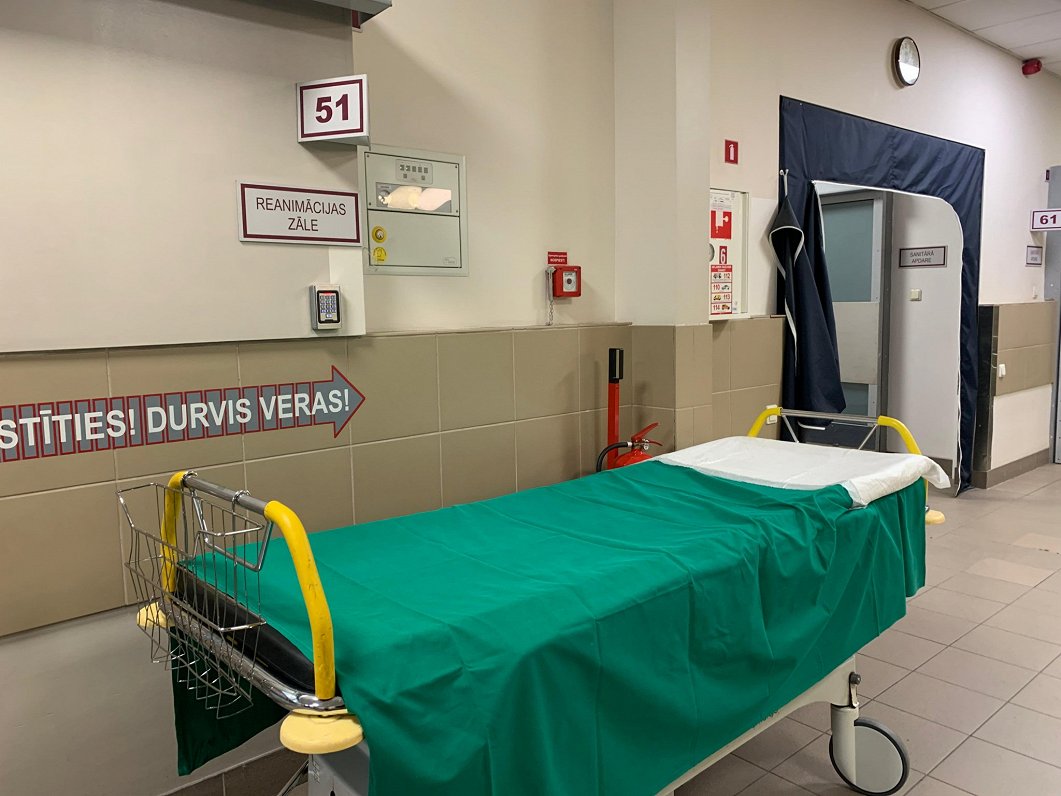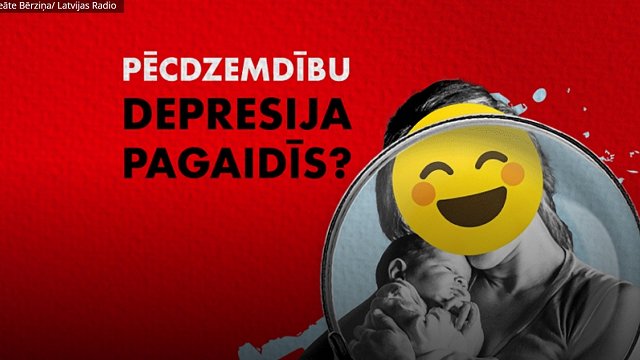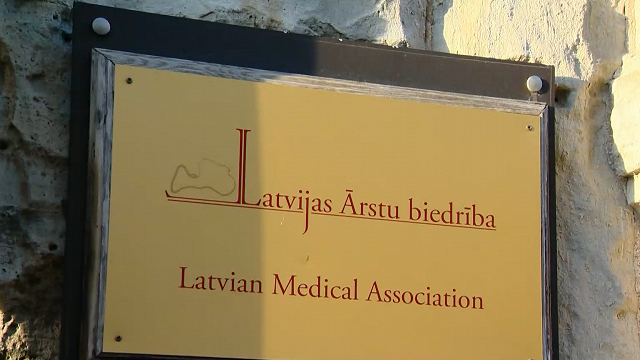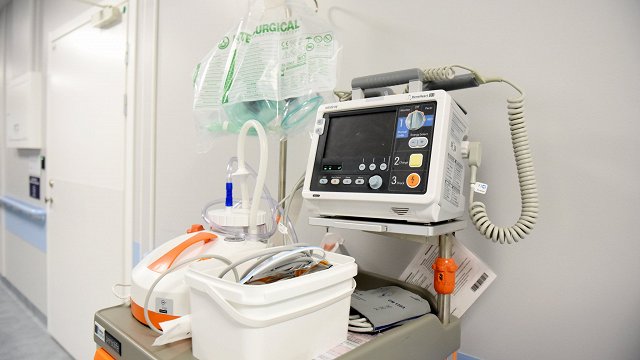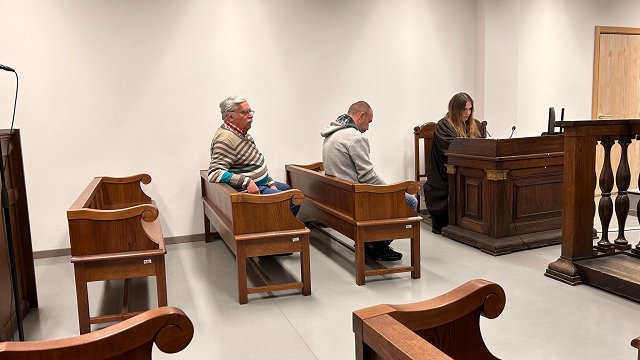This month, at the Eastern Clinical University Hospital in Riga, the wife of a patient attacked an intensive care doctor on duty, strangling her until the doctor herself needed urgent medical assistance. The case sparked widespread echoes among the public: some took the side of the doctor, others the attacker.
The hospital says attacks on medical workers are not uncommon, but they cannot be justified by despair, anger, or stress.
"Violence against medical practitioners is everyday life. Unfortunately, it is every day that we do not want to put up with it and that we do not want to accept,” says Aleksejs Višņakovs, head of the emergency medicine and patient admissions clinic at Riga Eastern Hospital.
The doctor explains that patients themselves tend to be aggressive, but this is most often due to changes in health. Dizziness, illness, trauma, or mental condition can alter perception and behavior. Doctors are willing to help.
"But the other part is hooligan behavior, which is completely unacceptable, but unfortunately increasingly we are facing cases where medical staff are physically attacked by people who are generally well-disposed, with some level of intelligence, who work, who are not homeless or users of toxic substances."
Doctors and nurses have been threatened with weapons, stabbed, kicked in the abdomen, punched, insulted, and stalked.
Marks Ronis, chief doctor of the Children's Clinical University Hospital Emergency Medicine Center, talked about his experience in a previous workplace:
"I had a patient who likely developed new complaints unrelated to my treatment. I couldn't find a connection and the patient then chased me for quite a long time - I think eight months - and called my workplaces. He didn't have access to my phone, but he called receptionists and different departments where I was working at the time, threatened that he would beat me, kill me or whatever, that he would also come and hammer it all up with a big hammer, and my colleagues would be hurt too."
Loved ones of patients tend to vent their anger also by smashing medical equipment and demolishing facilities, for example, a relative of one of the sufferers in the East hospital knocked out glass doors. Others behave arrogantly and threaten to get doctors or sisters sacked because they themselves have the same power or are known as high-ranking and influential individuals, hospital representatives told Latvian Radio.
A relatively new trend is the constant filming of medical staff, hoping to catch proof of mistakes. Incidents involving nationality issues have also been more frequent recently.
“We have very specific situations where young doctors no longer command Russian at such a good level to communicate effectively and professionally in Russian, telling patients' parents all the nuances and details of the illness. It is often perceived perhaps in the wrong way – as an unwillingness to speak one language or another,” said Valts Ābols, Chairman of the Board of the Children's Clinical University Hospital.
In the Eastern hospital, the opposite situation is described – a doctor who spoke Latvian with a Russian accent was insulted. Hospitals do not report all attacks – they are far too frequent, especially verbally, to even be discussed. Unfortunately, even in more extreme cases with physical harassment, it is rarely reported, as experience suggests that this may not have any effect. That's why doctors and nurses feel vulnerable, Višņakovs said.
"Realistically, after the attacks, a number of staff have stopped working at our hospital, but some have left healthcare altogether because they can't put up with that attitude. If we are talking about assaults such as swearing, humiliating, or shouting, then of course we can turn to the police, but if a person has not been injured so much that they cannot work or have permanent consequences, [..] we don't feel the result because punishments are often not applied at all,” says Višņakovs.
The Emergency Medical Service (NMPD) compiles statistics marking the frequency of attacks. As the NMPD also encounters aggression on a daily basis, it is essentially working hand-in-hand with police, explained Liene Cipule, head of the service.
"These were at least three calls last year per day where crews have flagged situations that have been associated with different forms of aggression. Often these situations end in real physical violence; last year we recorded 10 incidents that have ended in incapacity of work," Cipule told LR.
The increase in aggression towards medical workers is not exclusive to Latvia, but Latvia is characterized by a predominantly female healthcare sector. About 90% of medical workers are women, noted Valts Ābols, head of the children's hospital.
Studies in other countries have also found that such attacks became more common as the Covid pandemic and associated restrictions began. But when restrictions were lifted, aggression did not go down.
“Right now we are seeing a very drastic polarization of opinion and generally society. It started already during Covid -- whether there is a Covid, whether it's serious or not, whether masks, restrictions, or vaccinations are useful. The geopolitical and socioeconomic background came to the surface. I think it was accompanied by the growing tendency to comment anonymously and very aggressively on this whole thing on social media.
"And then I think the understanding of boundaries in life is lost. If I've been able to do this in the most aggressive way on social media, then I can do it it in real life as well,” Valts Ābols continued.
Opinions on how to address the problem vary. There are proposals to educate the public on how to accept the death of a close person, because it is often despair that can trigger aggression. Others suggest that people be prepared for what they may have to face in a treatment facility, such as that they may have to wait in line, that patients are sorted out in the most urgent and not-so-urgent, however critical and agonizing the condition of their own or especially a sick child seems.
The representatives of the authorities also reiterate that there is a civilized complaint procedure as well as access to the Health Inspectorate. More radical is the suggestion that doctors be given special legal status and sentences for attacking medics be made more severe.
Liene Cipule, Head of the NMPD, offers her solution:
“The moment between the start of the event and the arrival of police is the riskiest where the brigade can be most harmed, so we are considering the idea of introducing self-defense equipment for brigades. Police say they also saw a reduction in the number of such episodes when introducing body cameras [..]. ”
An attack on a medical practitioner is not harm to one person, but to all patients of that doctor or nurse, as the victim can no longer continue to work and should be replaced or decides to leave the profession altogether. With a shortage of staff, this is not a simple issue to solve, said Eva Strīķe, chief medical officer at Stradiņš Hospital.
"That's one reason, violence is traumatic in both emotional and physical terms. This manifests in both fear and reluctance to work in the profession. There have been cases like this. I won't name a number because I'm afraid to be inaccurate, but such refusals to work in medicine in other institutions and leave the profession have occurred," Strīķe said.
